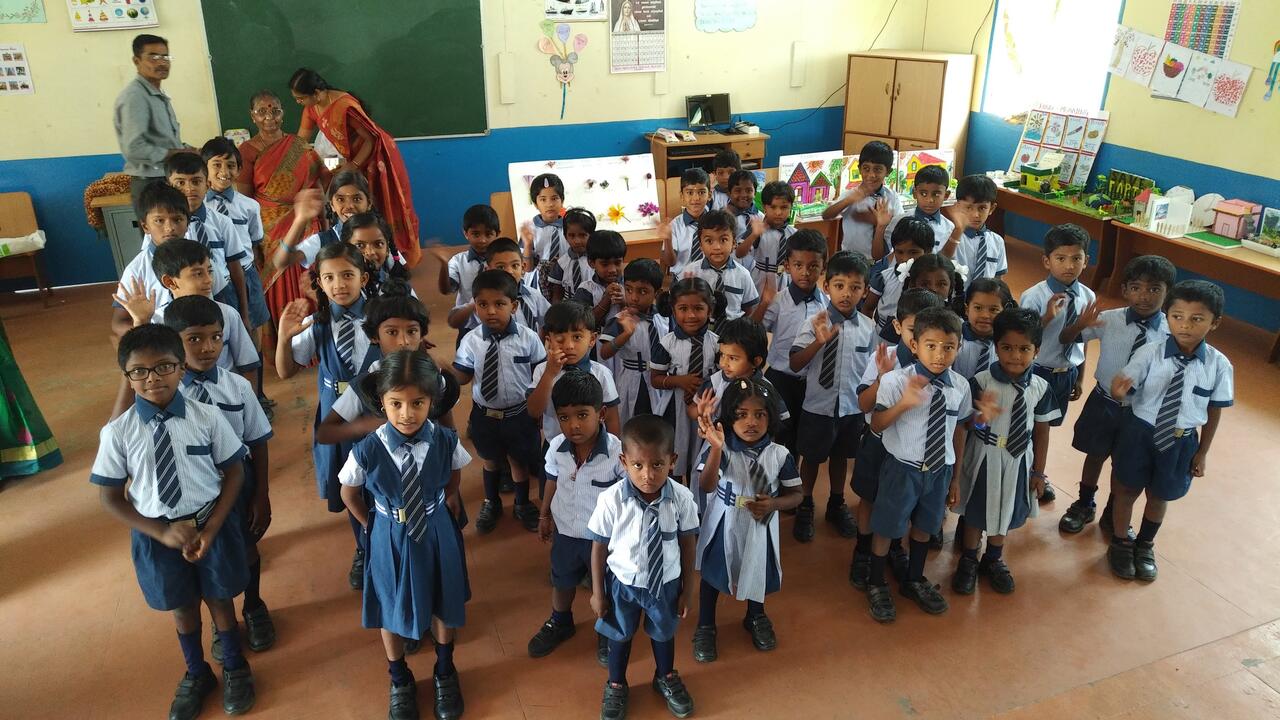
Improving lives around the world
Grad's foundation provides community support and increased access to education

Grad's foundation provides community support and increased access to education
By Carol Truemner Faculty of EngineeringThis month, doors open at a new school in one of India’s most rural and impoverished regions to provide 300 children with a formal education— something many of their parents never had the opportunity to experience.
The Steele Family Foundation, led by Michael Steele, a 1980 civil engineering alumnus, helped fund, design and build the school in the town of Mathigiri, just south of Bangalore, India, for young students from three to 10 years old.
“In many cases, school programs have not been available or parents just don’t have the time to take their kids to school because they are working on farms,” says Michael, who lives outside of Toronto and runs a consulting and finance business.
Improving the lives of vulnerable and underprivileged people and increasing access to education to help break the cycle of poverty are the main objectives of the Steele Family Foundation.
While the foundation was officially established in 2007, its roots date back all the way back to the Second World War when Michael’s father spent time in India as a British marine.
After being injured in 1942, Thomas Steele was nursed back to health in a hospital in the northern part of the country. While there, he met Mother Teresa, without knowing who she was at that time.
Following Thomas’s death in 1994, his wife Agnes said her husband would have wanted his estate to go to philanthropic causes and helping the impoverished people of India.
Michael thought it was a great idea.
“We ended up literally selling the farm we had been raised on in Oxbridge, Ontario,” says Michael. “We added more of our capital to the proceeds and created the foundation while my mother was still alive.”
Along with Agnes, Michael, his two daughters and his aunt Elizabeth McLaughlin helped launch the foundation. Today, it is broken into two endowments – one for international causes and the other for domestic work.
On the domestic side, the foundation has helped a wide variety of charitable organizations from Covenant House, Canada's largest agency serving at-risk and homeless youth, to Cambridge’s Pride Stables, which offers horseback riding lessons to people with disabilities. Besides assisting charities financially, foundation members have provided over 200 hours of volunteer work.
The foundation has also supported the international Missionaries of Charity, started in 1950 by Mother Teresa.
Six years ago, Michael's daughter Jennifer Steele, associate director of the foundation, visited the Toronto chapter of the charitable group to make an annual donation. While there, she was introduced to the Sacred Trust Project, an international development project to build an elementary school in India.
“One of the sisters explained that Sacred Trust, a public charitable trust registered under the laws of India, was in need of funds because the school project had run out of money before it could be completed,” says Michael.
ln May 2015, Michael and Jennifer visited local children’s villages in India to learn more about international development work, including the day-to-day operations of running a school. Both agreed it was a worthwhile project and one that Agnes, Thomas and Elizabeth would have wanted them to pursue.
Michael emphasizes that it’s important for the Mathigiri community to get behind the school and support sending its children there. To help do this, a donated church was refurbished to include a presentation centre with school plans and information in its rectory.
The first phase of the project, a renovated community centre right beside the school, opened last year to about 40 preschoolers aged three to five. Long-term plans include adding a high school onto the elementary school building to educate an additional 1,200 students.
“Our goal is to provide a program that will enable students to be educated, ensuring more self-sufficiency overall,” says Michael. “It’s a commitment, not just in capital."
The foundation is also launching a student scholarship that’s integrated with the Duke of Edinburgh Award, a youth awards program founded by Prince Philip.
With other international projects on the go, including one in Haiti, Michael’s family foundation has had a much broader reach than he envisioned 12 years ago.
“For us, the foundation has been an incredible blessing, not just for what we’re learning, but for all the people we’re meeting and helping along the way,” he says. “It’s proven to be a very important part of our lives.”
Michael credits much of his success as a businessman and philanthropist to Waterloo Engineering and his co-op terms, all of them spent working at the corporate office of Labatt Breweries of Canada.
“The experience opened my eyes to being able to do anything you really want as long as you have a good background,” he says. “The University of Waterloo provided the impetus for me wanting to try just about anything.”

Read more
How Doug Kavanagh’s software engineering degree laid the foundation for a thriving career in patient care

Read more
Upside Robotics secures new funding to accelerate the future of sustainable farming

Read more
Redefining capstone learning by bringing students, faculty and community partners together to tackle real-world challenges
The University of Waterloo acknowledges that much of our work takes place on the traditional territory of the Neutral, Anishinaabeg, and Haudenosaunee peoples. Our main campus is situated on the Haldimand Tract, the land granted to the Six Nations that includes six miles on each side of the Grand River. Our active work toward reconciliation takes place across our campuses through research, learning, teaching, and community building, and is co-ordinated within the Office of Indigenous Relations.